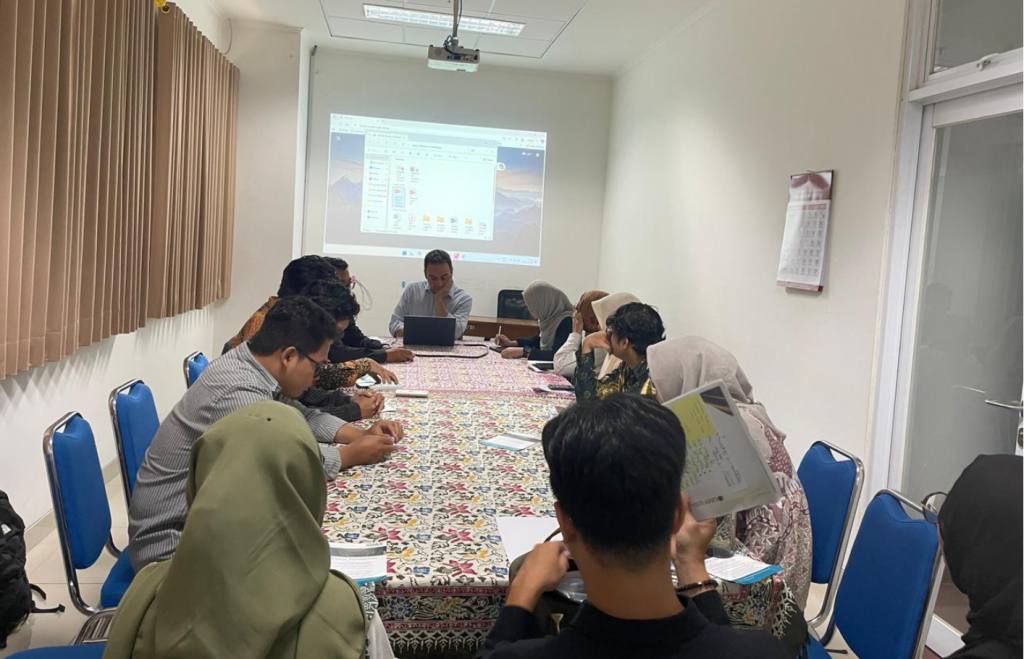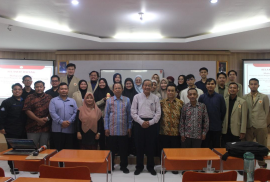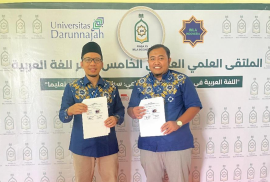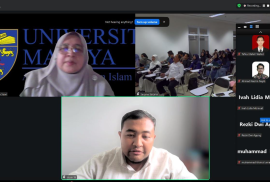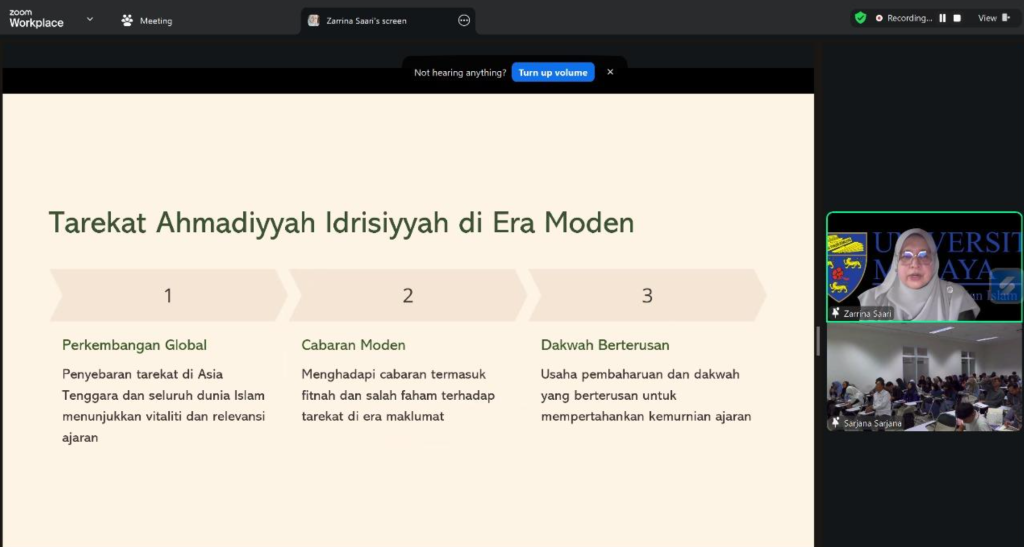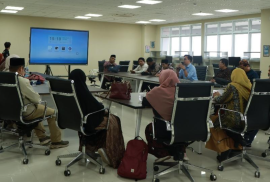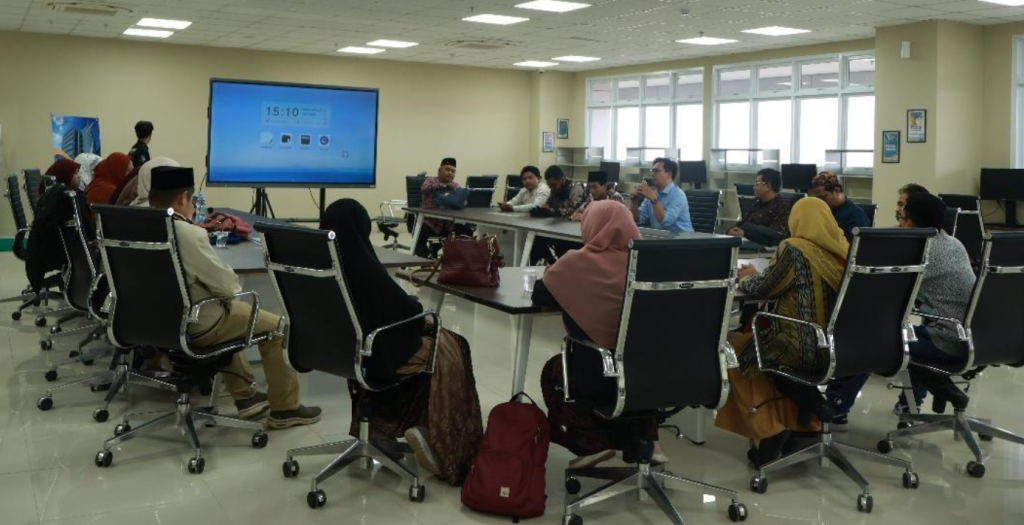Yogyakarta, November 13, 2025 – The Middle Eastern Studies Program (KBTT) and the Arabic Literature Program at Gadjah Mada University held an inspirational discussion session with Visiting Lecturer Prof. Ayman Shihadeh from SOAS University of London. This activity was held after the International Public Lecture, which was part of the event series, and took place from 11:00 a.m. to 12:00 p.m. in the KBTT Study Program meeting room. The discussion was attended by several enthusiastic students from the KBTT and Arabic Literature Study Programs at UGM who were eager to learn about Prof. Ayman Shihadeh’s academic experiences and international insights.
During the session, Prof. Ayman shared his experiences and views on teaching, research, and academic development at SOAS, as well as the importance of fostering collaborative relationships between universities worldwide, particularly in the fields of cultural studies and tolerance. He also presented the new MA Islamic Humanities program launched by SOAS in 2025. He gave a detailed presentation on the new study program, which offers several concentrations, including social studies, history, literature, religion, and others. This further increased the enthusiasm of the participants because the study program is very relevant to the fields of Middle Eastern Cultural Studies and Arabic Literature.
In addition, this discussion also provided an opportunity for students to ask questions and share their views on the development of study programs and the potential for international cooperation that can be optimized in the future. Prof. Ayman emphasized the importance of openness in thinking and developing insights in facing global challenges. The event concluded with a group photo session and informal discussions that strengthened the academic relationship between UGM and SOAS and opened up opportunities for further collaboration. This event was an important step in introducing UGM’s Middle Eastern Cultural Studies students to a global perspective and strengthening academic ties with renowned institutions around the world, such as SOAS University of London. The discussion is expected to have a positive impact on academic development and international cooperation in the future.
Author: Jesisca Amanda


